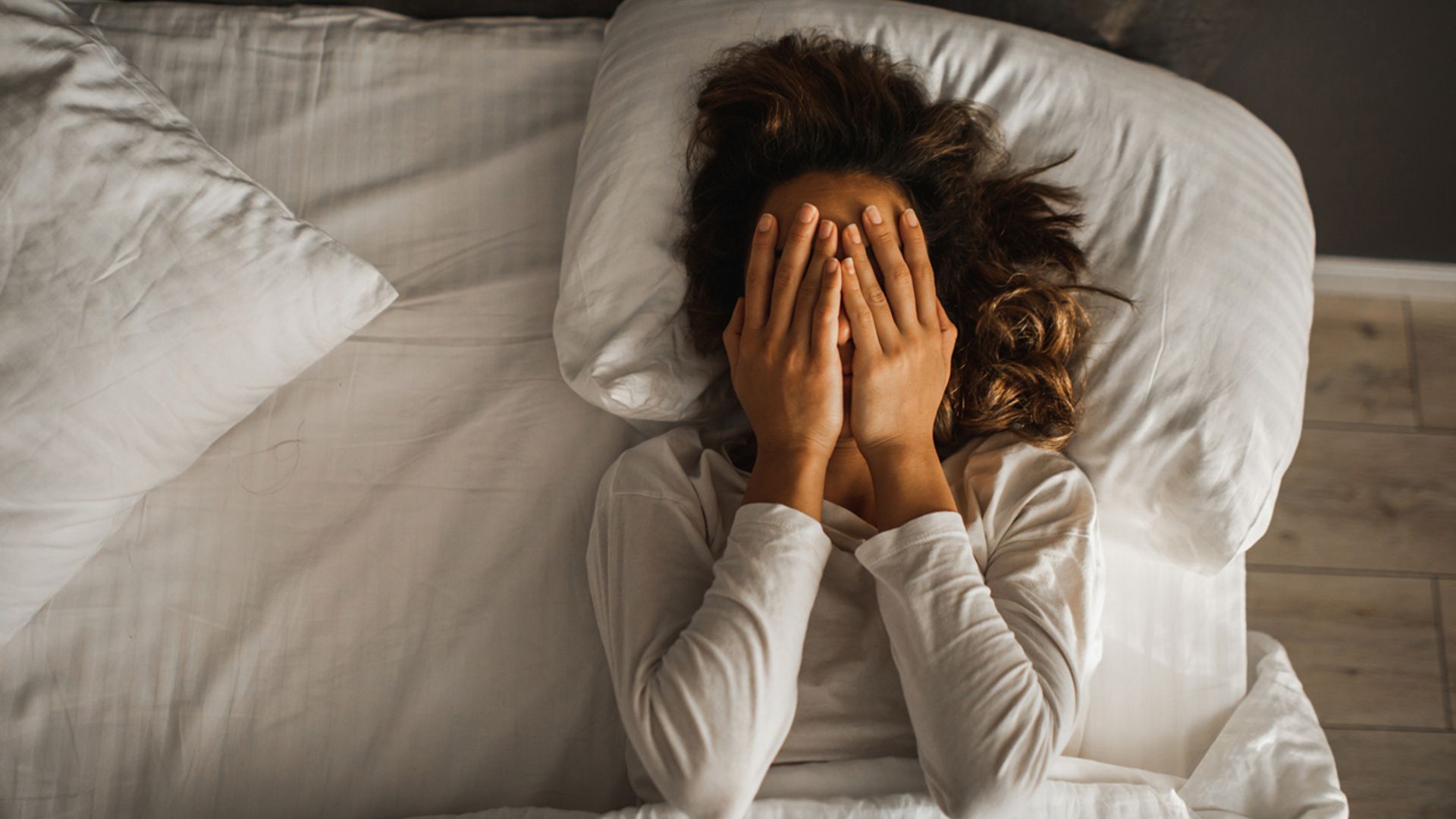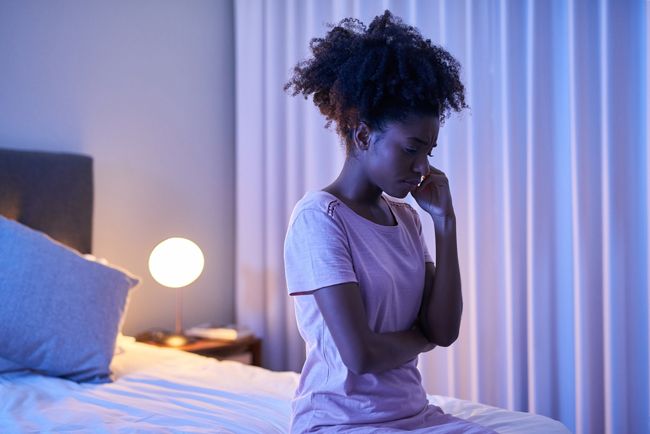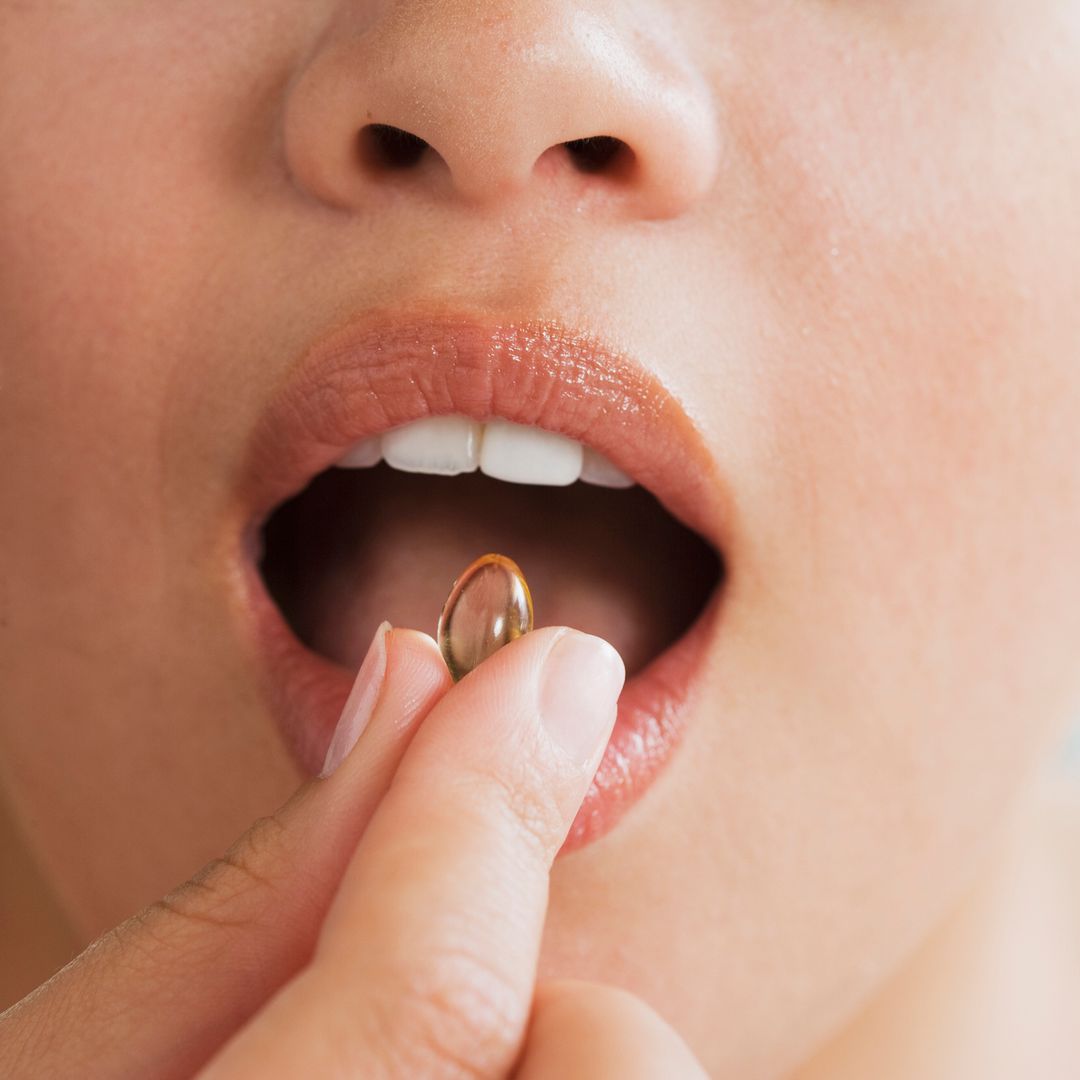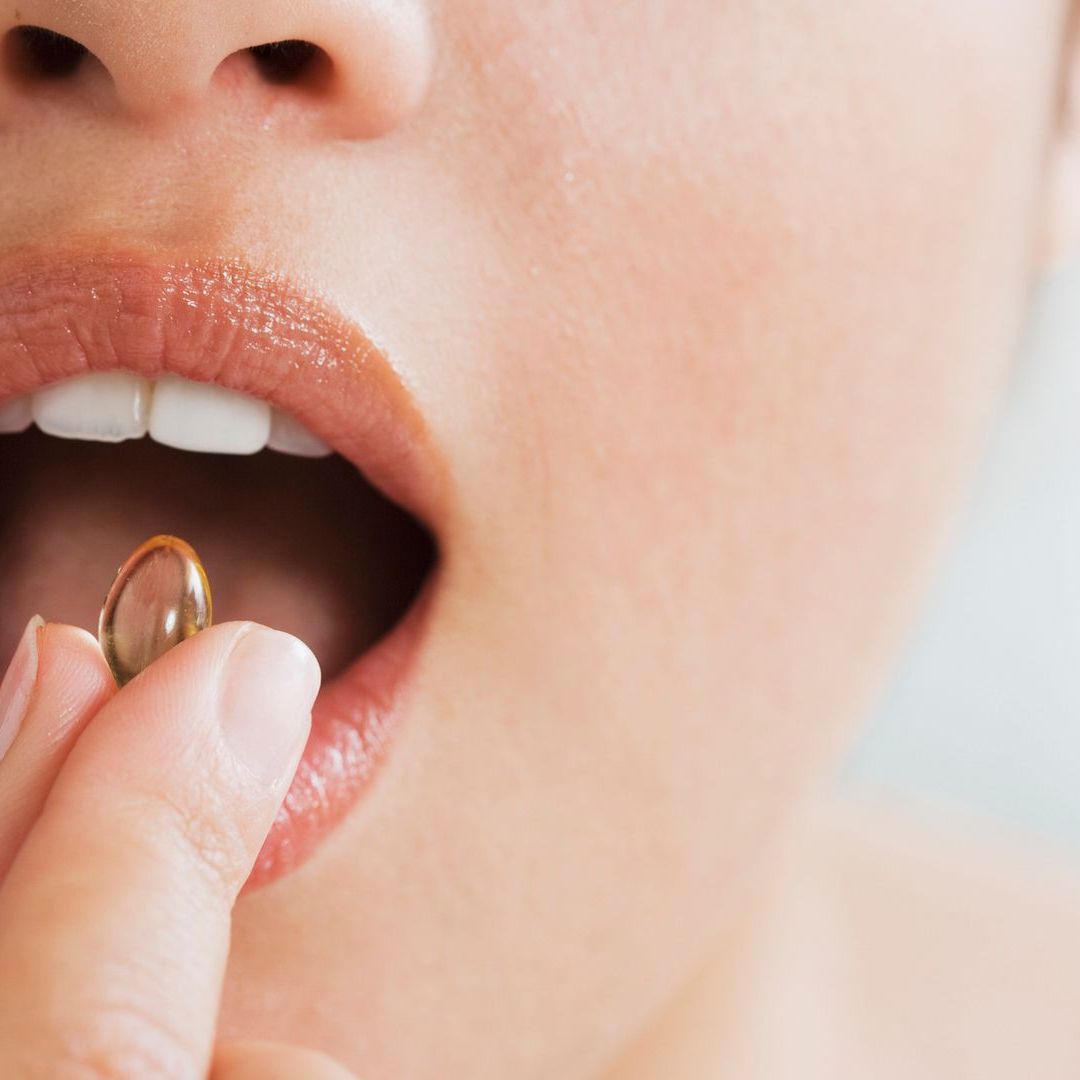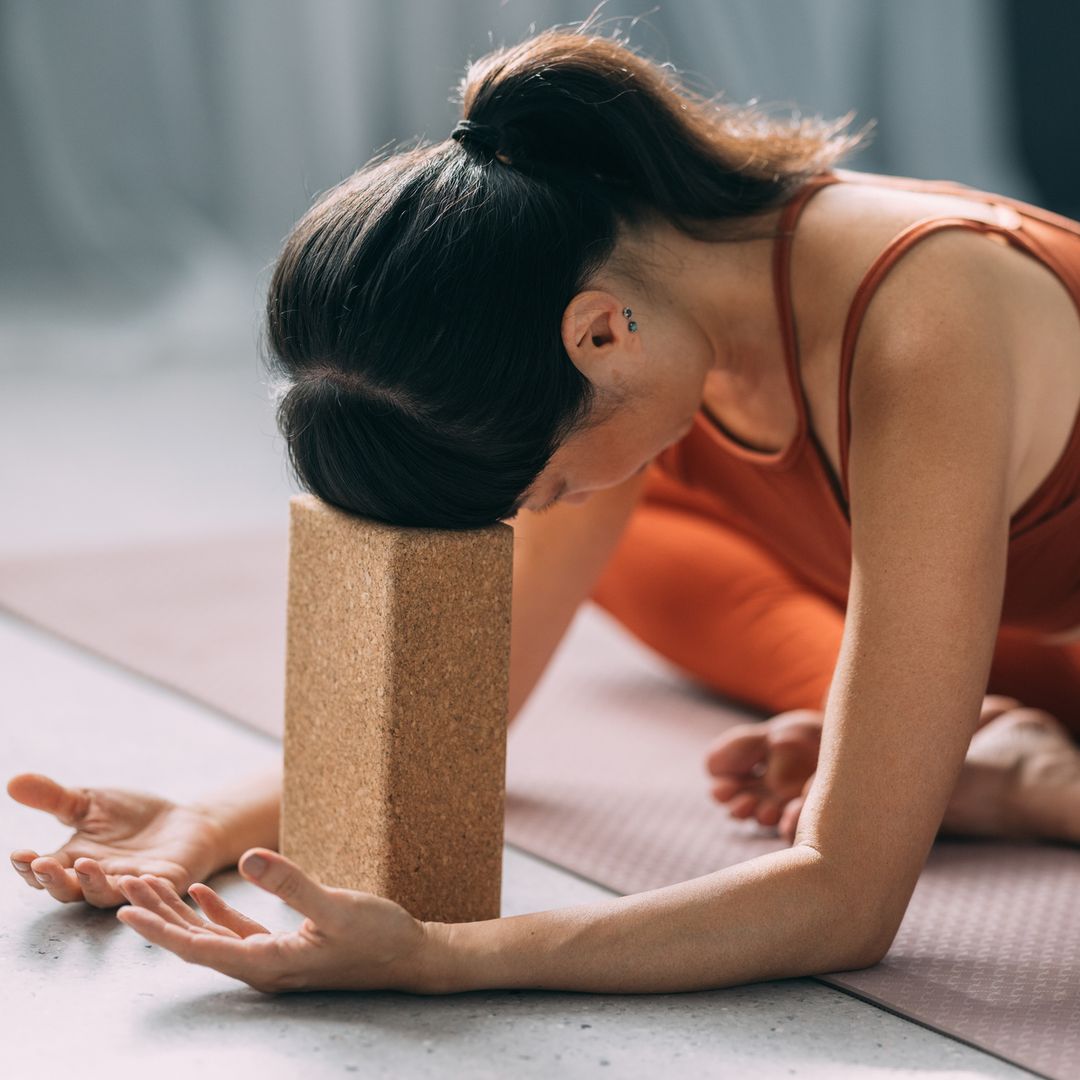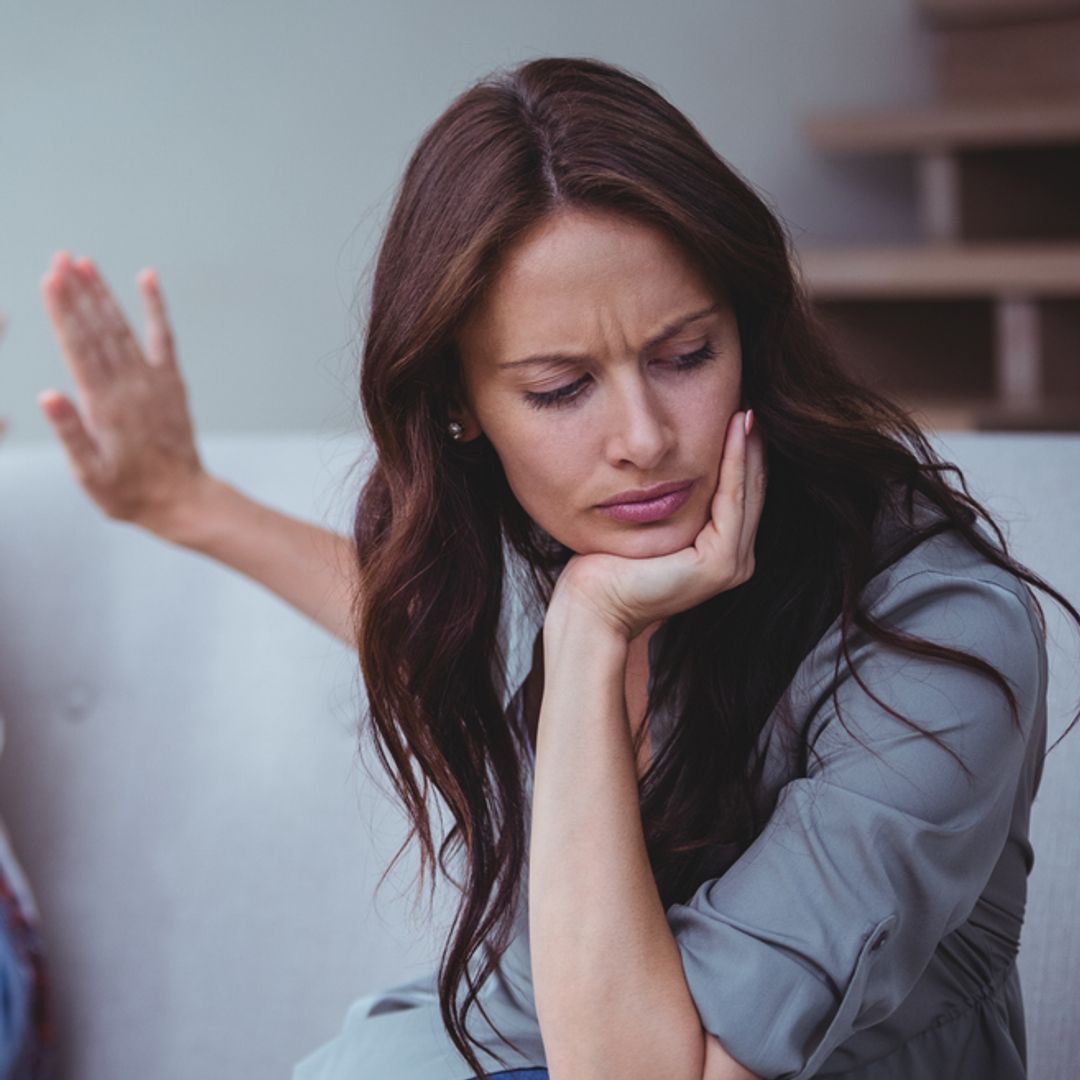If you often find yourself looking at the clock and mentally calculating how little sleep you're going to get that night, you could be suffering from orthosomnia.
Orthosomnia is the worry about getting enough sleep - and while a lack of sleep is a nightmare, lying in bed fretting that you won’t be able to drift off can feel just as bad.
"I've gone through spells of insomnia for 25 years," says PR professional Hannah Leach. "The worst thing I do when I'm having one of these nights is checking my clock - 2am, 3am, 4am. This starts a spiral of worry that I'm not going to have enough sleep."
Lack of sleep can feel crippling
What is orthosomnia?
"Orthosomnia is a relatively recent term for the worry about getting enough sleep – specifically a perfectionist quest to achieve perfect sleep," explains Alex Glover, senior nutritionist at Holland & Barrett.
Orthosomnia is triggered by overthinking sleep, and overthinking is one of the biggest symptoms of insomnia, according to behavioural sleep specialist Donna Fairley. "It can affect falling asleep, staying asleep and wakening early in the morning."
Overthinking your lack of sleep can also set off anxiety - the enemy of sleep.
"Anxiety over any issue is never a nice problem to deal with and those that have suffered with it know that in extreme cases it can become all-consuming and even debilitating," Alex adds.
DISCOVER: 6 best sleep supplements to try if you're struggling to sleep right now
It comes as no surprise that orthosomnia, or lack of sleep in any guise, spells trouble for our happiness.
"Being sleep deprived is one of the worst feelings," agrees Hannah. "It affected every aspect of my day and how I'd function. It wasn't just the tiredness, I felt really emotional too - the slightest hiccup felt like a major issue and it was hard to gain a perspective on things."
Donna Fairley explains that sleep has a role to play in regulating our emotions and mood. "Anyone who hasn’t had a full night's sleep knows it can make you groggy, moody, and even depressed," she says.
REVEALED: Why can't I sleep during menopause? The real reason
"Poor sleep can hinder you from thinking clearly and keeping your emotions at an even keel. Studies show that excessive sleepiness can wreak havoc with relationships and can lead to mood problems such as anger and depression."
Hannah has come out the other side of insomnia and explains: "Since working on my sleep habits I'm happier, more positive, and can keep minor blips in perspective."
Hannah is much happier now she has her sleep under control
As someone who struggles to sleep too, I often find that night-time rituals, such as lighting a calming candle, taking CBD oil and spraying a sleep spray, have the opposite of their intended calming effect.
These rituals are supposed to help ease you into the land of nod, but I find the pressure of all the bedtime ablutions trigger my sleep overthinking before my head has even hit the pillow.
As a lifelong insomniac, Hannah has some failsafe advice for drifting off - and it runs much deeper than the standard advice of put your phone away and spray a sleep mist.
With this in mind, I trusted Hannah’s tried and tested advice for sleeping well far more than the usual tips.
5 insomniac-approved tips for sleeping well
1. Get to the root cause of your sleep issues
"For me, it was worry and anxiety,” Hannah shares. "I visited my GP who helped me access a course of CBT to help with my anxiety and to put things into perspective."
2. Take notes
"If I'm struggling to sleep because I'm overthinking, I write everything down," Hannah says. "It tricks my brain into thinking, 'this is important but I can deal with it in the morning,'."
3. Get in position
"I have a favourite sleep position that I feel super relaxed and comfy in, and I know this guarantees that I stand the best chance of nodding off. It's about knowing yourself and what works for you," Hannah says.
4. Opt for an early bedtime
"I go to bed relatively early at around 10pm, because I find that if I go to bed too late I sometimes go past the point of tiredness and it's much harder to drift off naturally,” Hannah explains.
5. Clear your mind
"I try to clear my mind of all my thoughts – it's a weird one to explain but it's a form of meditation and it works if I'm struggling to sleep,” Hannah concludes.
Subscribe to Hello Happiness, for your ultimate guide on how to be happier.
